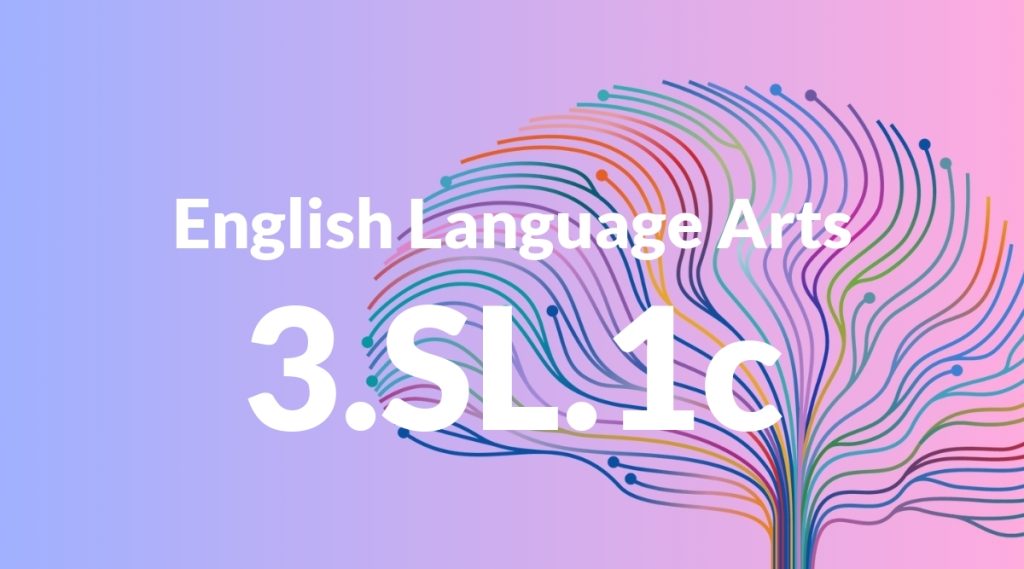Standard: 3.SL.1 – Engage effectively in a range of collaborative discussions (one-on-one, in groups, and teacher-led) with diverse partners on grade 3 topics and texts, building on others’ ideas and expressing their own clearly.
Grade level: Grade 3
Subject: English Language Arts
Domain: Speaking & Listening
Teacher Overview
This standard focuses on helping students engage in collaborative discussions, which is crucial for developing their communication and critical thinking skills. It prepares them to work effectively in diverse groups and express their ideas clearly. Students should have basic listening skills and some experience with group discussions. They should also be able to follow instructions and share their thoughts in a group setting.
After mastering this standard, students will be able to engage in more complex discussions, critically analyze ideas, and express their thoughts clearly and confidently in various settings.
Common Misconception 1
Some students might think that only their ideas are important in a discussion. This is incorrect because collaborative discussions require valuing and building on others’ ideas as well.
Intervention 1
Use activities that emphasize active listening, such as having students summarize what their peers said before they add their own thoughts.
Common Misconception 2
Another common misconception is that discussions are only about agreeing with others. This is incorrect because discussions can involve respectful disagreement and constructive feedback.
Intervention 2
Encourage students to provide respectful disagreement and teach them how to give and receive constructive feedback through role-playing activities.
Prerequisite Knowledge
Students should have basic listening skills, the ability to follow simple instructions, and some experience with sharing their thoughts in a group setting.
Subsequent Knowledge
Students will develop advanced communication skills, the ability to critically analyze others’ ideas, and the confidence to express their own thoughts clearly in various settings.
Instructional Activities
- Classroom debates on book readings
- Group projects on science topics
- Peer review sessions for writing assignments
- Role-playing activities to practice dialogue
- Group brainstorming sessions for creative writing
- Teacher-led discussions on current events




